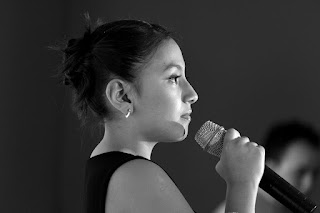Voice lessons are invaluable for singers who want to study effective techniques, improve their range and extend their vocal longevity. A vocalist should be aware, up front, of costs associated with these lessons. When deciding to take lessons, vocalists must weigh all factors in determining the actual cost of vocal coaching.
Tuition
As of 2021, according to CostHelper (costhelper.com), a typical studio will charge $10 to $35 per half-hour lesson and professionals with advanced degrees and performing experience may charge upward of $100 or more for this duration. Vocal tuition will vary among studios and will be based on the teacher’s skill, abilities and location. According to UreMusic.com, a teacher living in a major city will usually charge more for lessons than a teacher who lives in a rural area due to the generally higher cost of living and higher demand for teachers.
Materials
In some instances, a vocal teacher may include materials in the tuition. However, this is rare since no two students will need the same materials. It is hard to predict what songs and repertoire students will require since materials vary depending on voice ranges and styles. According to CostHelper, as of 2021, students annually should expect to spend $50 to $150 — and in some cases more — for books and materials.
Transportation
Many students may not consider the cost of transportation — and if a student can walk to lessons, this isn’t a concern. However, a vocal student often must drive to a nearby university or voice studio to take lessons. When this happens, the cost of lessons increases with the amount of fuel required to get to those lessons. This small figure will add up toward the end of the year. To cut overall costs, find an instructor close to your home.
Recitals
According to CostHelper, as of 2021, recitals may come with a fee of “$2 to $25 for informal activities and $30 to $200 or more for larger or more prestigious events.” These fees cover the cost of the vocal teacher’s time, award-certificate creation and the cost of food and drinks at the reception. However, for the enthusiastic musician, it is a small price to pay for the experience of performing before an audience.

Comments
Post a Comment